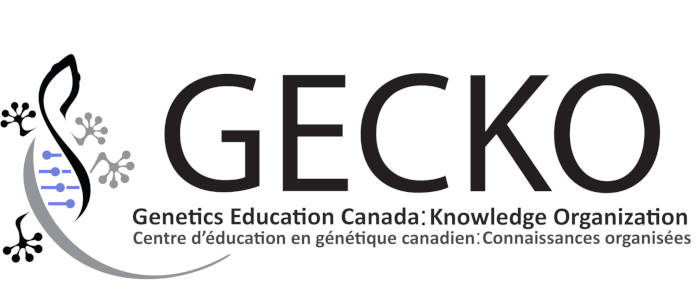Updated September 2025
1. To identify individuals most likely to benefit from referral to genetics
3. Gene specific screening recommendations
4. All three tools enclosed here
Bottom line: Lynch syndrome (LS) is a common (1/279) autosomal dominant hereditary cancer predisposition syndrome. LS is associated with an increased lifetime risk for colorectal (CRC) and endometrial (EC) cancer in addition to cancers of the ovary, stomach, small bowel, pancreas, biliary tract, urothelial tissue and renal pelvis, brain (i.e. glioblastoma), and skin (i.e. sebaceous adenoma or carcinoma, keratoacanthomas). The actual cancer risk depends upon which LS-associated gene contains a pathogenic or likely pathogenic variant. Genetic assessment should be considered for those with a:
- Family history of a known pathogenic/likely pathogenic variant in a LS-associated gene (MLH1, MSH6, MSH2, PMS2, EPCAM). All but EPCAM are also known as mismatch repair (MMR) genes.
- Personal history of LS-associated cancer (i.e. CRC, EC or other cancer listed above) diagnosed at <50 years
- Personal history of CRC or EC at any age and a family history of LS-associated cancer, with at least one cancer diagnosed <50 years (the individuals diagnosed with cancer should be related to each other)
- Personal history of CRC or EC and two or more relatives with LS-associated cancers, regardless of age
- Personal history of multiple primary LS-associated cancers
- Personal history of a LS-associated tumour where immunohistochemical (IHC) staining shows deficient mismatch repair (MMR) gene expression, consistent with LS
- Probability of carrying a pathogenic/likely pathogenic variant in a LS-associated gene estimated to be >5%, using a validated risk calculator e.g. PREMM5
Primary care practitioners have a role in identifying those who could benefit from a genetic assessment, coordinating high-risk screening (e.g. annual colonoscopy), and referring for specialist consultation (e.g. gynecology, gastroenterology) for consideration of risk-reducing management and screening recommendations.
(For more information see the GECKO deep dive or the concise GECKO on the run).
Find your local genetics program here.
Disclaimer:
· GECKO is an independent not-for-profit program that does not accept support from commercial or non-academic entities.
· GECKO aims to aid the practicing non-genetics clinician by providing informed resources regarding genetic/genomic conditions, services and technologies that have been developed in a rigorous and evidence-based manner with periodic updating. The content on the GECKO site is for educational purposes only. No resource should be used as a substitute for clinical judgement. GECKO assumes no responsibility or liability resulting from the use of information contained herein.
· All clinicians using this site are encouraged to consult local genetics clinics, medical geneticists, or specialists for clarification of questions that arise relating to specific patient problems.
· All patients should seek the advice of their own physician or other qualified clinician regarding any medical questions or conditions.
· External links are selected and reviewed at the time a page is published. However, GECKO is not responsible for the content of external websites. The inclusion of a link to an external website from GECKO should not be understood to be an endorsement of that website or the site’s owners (or their products/services).
· We strive to provide accurate, timely, unbiased, and up-to-date information on this site, and make every attempt to ensure the integrity of the site. However, it is possible that the information contained here may contain inaccuracies or errors for which neither GECKO nor its funding agencies assume responsibility.



